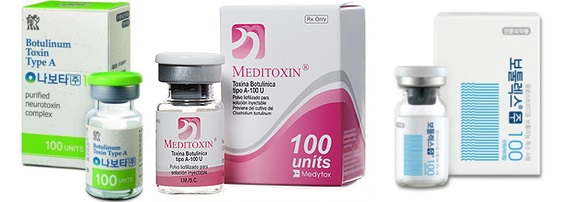The severe domestic competition among three drugmakers over Botulinum toxin is spreading to overseas markets. Medytox, Daewoong Pharmaceutical, and Hugel are competing to penetrate large anti-wrinkle treatment markets such as the U.S. and China.
Medytox eyes China’s \42-trillion plastic surgery market
China is a land of opportunity for Korean botulinum toxin developers. There are only a few products that have obtained China’s regulatory approval. Moreover, the market size is enormous.
According to Lee Ji-hyun, an analyst at Kiwoom Securities, the Chinese plastic surgery market is growing 29 percent a year on average. Botulinum toxins are used for 34 percent of “petit surgeries,” fillers, 26 percent, and laser, 12 percent, Lee says. Petit surgeries refer to minor cosmetic procedures involving injections without using a knife.

The value of the Chinese botulinum toxin industry is expected to exceed 400 billion won ($376 million) in 2020, industry watchers estimate.
Medytox is moving the quickest among Korean Botox makers to enter the Chinese market.
The company finished phase-3 clinical trials for the dermal filler in China in June 2017. Last month, the firm said it had completed seeking the regulatory approval of Meditoxin from China’s Food and Drug Administration. As it usually takes one year from requesting for approval to receiving sales permission in China, Medytox is likely to sell its product next year.
Medytox has already built a sales network by establishing Medybloom, a 50-50 joint venture between Medytox and Bloomage BioTechnology. Bloomage has a 60 percent share in the hyaluronic acid (HA)-based filler market in China.
Simultaneous sales of HA-based fillers and botulinum toxin can create synergy effects for both Medytox and Bloomage, Medytox said.
Only two botulinum toxin products obtained approval in China – Botox by Allergan, and BTX-A by Lanzhou, a Chinese firm.
Daewoong Pharm and Hugel are likely to join the anti-wrinkle treatment market in Korea as latecomers.
The two companies are conducting phase-3 clinical trials in China and expected to release products in 2022 or later.
Hugel picked Sihuan Pharmaceutical Holdings as a partner firm for China, but Daewoong is still searching for a local partner.
Daewoong, Hugel, faster than Medytox in US
As of 2017, the U.S. topped botulinum toxin consumption in the world, with more than 4 trillion won worth of Botox products sold in the year.
Daewoong Pharm and Hugel are quicker than Medytox in penetrating the U.S. market. Between Daewoong and Hugel, Daewoong is slightly ahead.
Daewoong Pharm signed a deal with Evolus to sell its botulinum toxin in the U.S. in 2013. The company plans to complete the trials and release its product within this year. Last year, the company registered the name of the ingredient and is now receiving a CGMP (Current Good Manufacturing Practice) inspection of the U.S. Food and Drug Administration.
Evolus, the U.S. partner firm for Daewoong, is preparing for listing on NASDAQ. As Evolus merged with Strathspey Crown, a private equity firm, the company granted exclusive rights to sell botulinum toxin to Strathspey Crown’s subsidiary, Alphaeon. With Strathspey Crown’s distribution channels in U.S. hospitals, Daewoong’s botulinum toxin will sell quickly if Evolus releases the product, experts said.
Hugel is testing its product in phase-3 trials. Depending on situations, the company may have to increase the number of participating patients. Observers expect that Hugel’s treatment will come out on the market between 2019 and 2021.
Although Hugel chose Chroma Pharma as a sales partner for the U.S., the Austrian company’s lack of experience in drug distribution in North America might prompt Hugel to search for another larger partner.
Although Medytox had already established a partnership with Allergan for the U.S. market, the company is experiencing a delay in product release due to various issues.
“The global botulinum market is growing faster than the local one, its size is bigger, and the selling price is higher,” said the analyst Lee of Kiwoom Securities. “An increase in export costs will turn out to be more beneficial than an increase in costs for domestic demand.”

